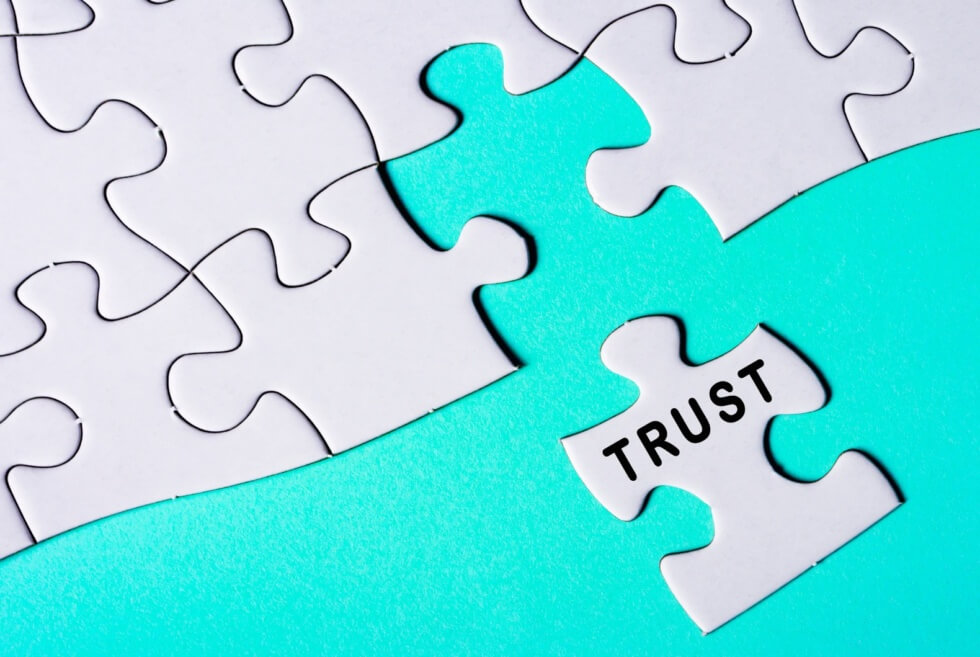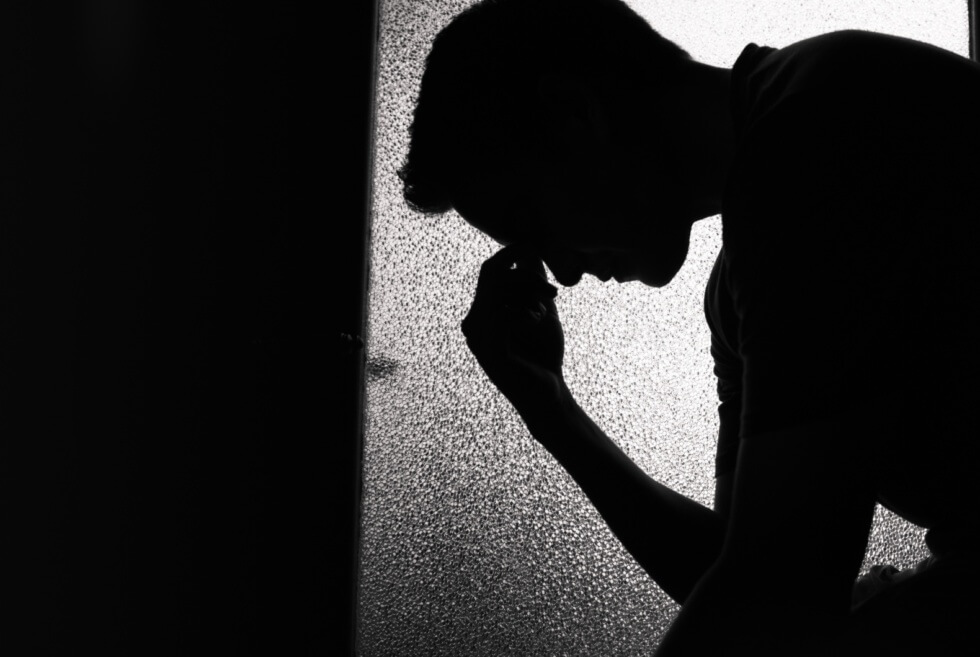Contents
- Sign 1: Constant Arguments
- Sign 2: Lack of Trust
- Sign 3: You’re Not Happy Anymore
- Sign 4: Different Life Goals
- Sign 5: Lack of Mutual Respect
- Sign 6: You Feel Better Alone
- Sign 7: Infidelity
- Sign 8: Your Friends and Family Don’t Approve
- Sign 9: You’re Not Yourself Anymore
- Sign 10: Emotional or Physical Abuse
- Sign 11: Lack of Communication
- Sign 12: No Shared Interests or Joy
- Sign 13: You’re Only Staying Out of Comfort
- Sign 14: You Fantasize About Being with Someone Else
- Sign 15: You’ve Tried to Fix Things, but Nothing Changes
Let’s face it, breaking up is never easy. It’s like deciding to return a sweater you once loved – it fit well, looked great, but now… it’s just not the same. Deciding to end a relationship, especially when you’ve invested time, emotions, and Netflix preferences, is tough. But sometimes, it’s necessary.
So, how do you know when it’s time to untie the knot? That’s what we’re here to explore. In this article, we’ll dive into 15 telltale signs that it might be time to break up with your girlfriend. These aren’t just any signs; they’re the red flags waving vigorously, trying to get your attention.
We’re not just talking about the occasional disagreement over whether to order pizza or Chinese. We’re diving deep into the real, sometimes uncomfortable indicators that your relationship might not be the healthiest. From trust issues to differing life paths, we’ll cover it all.
Remember, this isn’t about pointing fingers or playing the blame game. It’s about recognizing patterns and behaviors that are more than just bumps in the road – they’re signs pointing towards the nearest exit.
So buckle up, and let’s get started on this journey of relationship introspection. You might just find the answers you’ve been looking for, or at least a good chuckle or two. After all, a bit of humor never hurt anyone, especially when navigating the choppy waters of love and relationships.
Sign 1: Constant Arguments

Ah, the never-ending debates, where ‘what to have for dinner?’ feels like a UN negotiation session. If your relationship is starting to feel like a perpetual courtroom drama, it’s a significant red flag.
Arguments are normal in any relationship. They’re like the occasional thunderstorm that clears the air. But, when these storms turn into daily forecasts, it’s time to take notice. Constant arguing is a sign of deeper issues – it’s the tip of an iceberg, with a bulk of unresolved conflicts, mismatched expectations, and unmet needs lying beneath.
Consider this: Are your arguments productive? Do they lead to understanding and growth, or are they just verbal sparring matches with no winners? When disagreements turn into regular fixtures, it becomes less about resolving issues and more about scoring points. You start feeling like a lawyer constantly on the defense, rather than a partner in a loving relationship.
It’s not just the frequency of arguments, but also their nature. Are they respectful disagreements, or do they descend into personal attacks? The latter is especially worrisome. If you find that your arguments often leave you feeling drained, disrespected, or devalued, that’s not just a red flag; it’s a neon sign blinking a warning.
In a healthy relationship, communication is key. It involves listening, understanding, and finding common ground, not just waiting for your turn to speak. If you find yourself in a loop of endless arguments, it might be time to ask yourself: Is this the kind of communication I want in my life? Remember, it’s not just about the battles you win, but the peace you create in your relationship.
Peace is not the absence of conflict, but the ability to cope with it. – Mahatma Gandhi
Sign 2: Lack of Trust

Trust is the glue that holds a relationship together. When trust starts to erode, it’s like a crack in a dam; eventually, everything might come tumbling down. If you find yourself constantly doubting your partner’s words, actions, or intentions, it’s a glaring sign that your relationship could be on shaky ground.
Let’s break it down. Trust issues can manifest in many ways – maybe you’re questioning their fidelity, doubting their honesty about where they’ve been, or feeling uneasy about their commitments. These doubts can transform your relationship from a haven of security into a source of constant anxiety and suspicion.
Here’s something to ponder: Are your trust issues based on concrete evidence, or are they stemming from your insecurities? It’s crucial to differentiate. If your partner has given you reasons not to trust them, such as lying or cheating, that’s a serious concern. However, if your trust issues are more about your fears than their actions, it might be something for you to work on personally.
Trust is also about reliability. Can you count on your partner to be there for you, to support you, and to keep their promises? If the answer is no, it’s worth questioning why you’re in the relationship. Relationships thrive on mutual trust, and without it, they often turn into a source of stress and uncertainty.
Remember, rebuilding trust is challenging. It requires effort, transparency, and time from both partners. If you’re in a situation where trust has been broken repeatedly, or if it feels like an uphill battle to regain it, it might be a sign to reevaluate the future of your relationship. After all, being in a relationship where you feel secure and valued is not just important – it’s essential.
Trust is the glue of life. It’s the most essential ingredient in effective communication. It’s the foundational principle that holds all relationships. – Stephen R. Covey
Sign 3: You’re Not Happy Anymore

Happiness in a relationship isn’t a constant state, but if you find yourself consistently unhappy, it’s a serious red flag. Remember, a relationship should be a source of joy, support, and positivity in your life, not a chronic source of sadness or frustration.
Reflect on your feelings when you’re around your partner. Do you feel uplifted, supported, and joyful, or do you often feel drained, unhappy, and unfulfilled? If it’s the latter, it’s worth exploring why. Sometimes, unhappiness can stem from personal issues unrelated to the relationship, but if your dissatisfaction is directly linked to your interactions with your partner, that’s indicative of a deeper problem.
Consider how often you laugh together, share enjoyable experiences, and feel a sense of companionship. If these moments are rare or have ceased altogether, it’s a concerning sign. Relationships go through ups and downs, but if the ‘downs’ have become the norm, it’s a signal that something fundamental might be missing.
It’s also essential to distinguish between temporary unhappiness due to external factors (like stress at work) and unhappiness caused by the relationship itself. Are you unhappy because of who your partner is or how they treat you? Or is it because of external pressures that you could navigate together?
In a healthy relationship, you should feel like your best self. If you find yourself consistently unhappy and you’ve tried addressing it without success, it might be time to consider whether this relationship is right for you. Your happiness matters, and being in a relationship that consistently detracts from it is not a sacrifice you should have to make.
The greatest courage in life is to be happy. – D. H. Lawrence
Sign 4: Different Life Goals

When your life goals are wildly different from your partner’s, it’s like trying to merge two paths going in opposite directions. It’s crucial for a couple to share common goals or, at the very least, have goals that are compatible.
If you dream of traveling the world while your partner wants to settle down and start a family, or if your career aspirations are in stark contrast, these differences can become major roadblocks. While it’s okay to have individual goals, the core life objectives need to align for a harmonious journey together.
Take a moment to assess if you and your partner are working towards a common future or if your aspirations are pulling you apart. Relationships require compromise, but when it comes to your fundamental life goals, too much compromise can lead to resentment.
If you find that your visions for the future are consistently at odds, it might be a sign that the relationship isn’t sustainable in the long run. It’s essential to be with someone who shares or at least supports your vision of the future.
Do not bring people in your life who weigh you down. And trust your instincts… good relationships feel good. They feel right. They don’t hurt. – Michelle Obama
Sign 5: Lack of Mutual Respect
Respect is a cornerstone of any healthy relationship. If you find that respect is lacking, either in the way you treat each other or in the way you speak about one another, it’s a serious issue. Mutual respect involves valuing each other’s opinions, listening sincerely, and appreciating each other’s differences.
Pay attention to how you interact. Are there instances of belittling, constant criticism, or dismissiveness? These are signs of disrespect. A relationship should make you feel valued and accepted, not inferior or constantly under scrutiny.
If disrespect has become a pattern, it’s a clear sign that the relationship might not be the right one. Without mutual respect, the foundation of the relationship is weak, and it’s challenging to build a healthy, lasting partnership on such shaky ground.
Respect is one of the greatest expressions of love. – Miguel Angel Ruiz
Sign 6: You Feel Better Alone
In a healthy relationship, spending time together is a source of comfort and happiness. However, if you consistently find yourself feeling relieved or happier when you’re alone, it’s a sign worth paying attention to.
Reflect on how you feel during and after spending time with your partner. Do you look forward to being with them, or do you find yourself counting the minutes until you can be alone again? If solitude feels like a welcome escape from the stress and tension of your relationship, it indicates that something fundamental is missing.
Relationships should add to your life, not leave you craving solitude for peace and happiness. If being alone feels more fulfilling than being with your partner, it might be time to reconsider the health and future of your relationship.
Sometimes, you have to be alone to truly know your worth. – Karen A. Baquiran
Sign 7: Infidelity
Infidelity is a clear breach of trust and often a deal-breaker in relationships. If your partner has been unfaithful, it shakes the very foundation of trust and respect upon which your relationship is built.
It’s not just about the act of cheating itself, but what it signifies – a lack of commitment, respect, and care for the relationship and for you. While some couples can work through infidelity and rebuild trust, it requires immense effort, transparency, and forgiveness from both parties.
If you’re faced with infidelity, consider whether this is something you can move past. Can trust be rebuilt, or is it a sign that the relationship is no longer viable? The answer depends on the individual circumstances and your feelings, but it’s important to remember that you deserve a relationship built on mutual respect and loyalty.
Cheating and lying aren’t struggles, they’re reasons to break up. – Patti Callahan Henry
Sign 8: Your Friends and Family Don’t Approve
While it’s true that your relationship is between you and your partner, consistent disapproval from friends and family can be a red flag. These are the people who know you well and usually have your best interests at heart.
If your loved ones have reservations, it’s worth considering why. They might observe things you’re blind to, like how your partner treats you or how you change when you’re with them. Of course, it’s possible for friends and family to misjudge a situation, but if the concern is widespread and persistent, it’s a sign that shouldn’t be ignored.
Balancing the opinions of others with your own feelings about your relationship can be tricky. However, if there’s a chorus of concern from people you trust, it might be time to take a step back and evaluate your relationship from their perspective. Remember, sometimes love can make us overlook significant flaws that are clear to others.
When you stop expecting people to be perfect, you can like them for who they are. – Donald Miller
Sign 9: You’re Not Yourself Anymore
A telling sign in a relationship is if you find yourself losing your identity – you’re not the person you used to be, and not in a good way. If you’re constantly compromising your values, changing your interests, or suppressing your personality to keep the peace or please your partner, it’s a red flag.
Healthy relationships allow you to grow and evolve, but not at the cost of losing your essence. If you notice that you’ve stopped pursuing your hobbies, spending time with your friends, or expressing your true opinions, ask yourself why. Are these changes a result of mutual growth, or are they driven by the need to conform to what your partner expects or prefers?
Retaining your individuality and independence is crucial in a relationship. If you’re morphing into someone you barely recognize to fit into the relationship, it may not be the right fit for you. Your partner should love and accept you for who you are, not who they want you to be.
One of the greatest regrets in life is being what others would want you to be, rather than being yourself. – Shannon L. Alder
Sign 10: Emotional or Physical Abuse
This is a non-negotiable, absolute deal-breaker. Any form of emotional or physical abuse is a clear sign that the relationship is not just unhealthy, but potentially dangerous. Abuse can take many forms – from verbal insults and manipulation to physical harm – and all of them are serious.
In an abusive relationship, you might feel scared, belittled, or controlled. Abusers often use tactics like gaslighting to make you question your reality and isolate you from your support system. Remember, no amount of love or commitment justifies staying in an abusive situation.
If you recognize signs of abuse in your relationship, it’s important to seek help immediately. Reach out to trusted friends, family, or professional services for support. Leaving an abusive relationship can be challenging, but your safety and well-being are paramount. You deserve a relationship that makes you feel safe, respected, and loved.
Sign 11: Lack of Communication
Effective communication is the lifeblood of any healthy relationship. If you find yourself in a situation where there’s a consistent lack of open and honest communication, it’s a significant concern. This could manifest as avoiding discussions about important issues, feeling unheard or misunderstood, or an inability to express your feelings and needs.
When communication breaks down, it creates a breeding ground for misunderstandings and resentment. A partnership thrives on the ability to share thoughts, feelings, and concerns freely. If you’re holding back because you’re afraid of how your partner might react, or if you feel like talking leads nowhere, it’s a sign of a deeper problem.
Reflect on how you and your partner handle discussions, especially during conflicts. Are you able to resolve issues through dialogue, or do conversations end in arguments or silence? If healthy communication seems like a distant reality, it might be time to reevaluate the relationship’s future. Without communication, addressing and resolving other issues in the relationship becomes nearly impossible.
While it’s perfectly fine for couples to have individual interests, a complete lack of shared activities can be a red flag. Shared interests are often the glue that holds a relationship together, offering opportunities for joy, bonding, and creating fond memories.
If you find that you and your partner have no common activities that you both enjoy, or if the time spent together feels more obligatory than enjoyable, it’s worth paying attention to. Relationships should enhance your life, bringing in moments of happiness and shared experiences.
Think about when you spend time together – are these moments enjoyable or do they feel forced? Do you look forward to shared activities, or are they just items on a checklist? If you’re struggling to find joy in your time together, it might be a sign that your relationship lacks a vital spark.
Shared joy in a relationship is essential. It’s these moments that deepen the bond and create a sense of partnership. If your relationship is missing this key element, it may lead to a sense of disconnection and dissatisfaction in the long run.
Sign 13: You’re Only Staying Out of Comfort
If the primary reason you’re staying in the relationship is comfort or fear of being alone, it’s a sign that the relationship may not be right for you. Comfort, while important, shouldn’t be the sole glue holding a relationship together.
Ask yourself: Are you in this relationship because you truly love and appreciate your partner, or because it’s simply easier than facing change? Staying out of convenience can lead to long-term unhappiness and a sense of missing out on a more fulfilling relationship.
Relationships should be about more than just comfort; they should be about mutual love, respect, growth, and a genuine desire to be together. If comfort is all that’s keeping you in the relationship, it might be time to reassess your priorities and consider moving on to find a relationship that brings you true happiness and fulfillment.
Sign 14: You Fantasize About Being with Someone Else
Regularly fantasizing about being with someone else can be a sign that you’re not fully satisfied in your current relationship. While it’s normal to find others attractive, consistent daydreams about a life with someone else suggest deeper issues.
This sign goes beyond mere attraction – it’s about consistently imagining a different life or relationship. If these fantasies are a frequent escape from your current reality, it indicates that your current relationship might not be fulfilling your needs or desires.
It’s important to evaluate why you’re looking elsewhere for emotional or romantic fulfillment. If you’re constantly imagining a different partnership, it might be time to consider if your current relationship is truly meeting your needs.
Sign 15: You’ve Tried to Fix Things, but Nothing Changes
If you’ve made genuine efforts to address and resolve issues in your relationship, but nothing seems to improve, it might be a sign to move on. Persistent problems that resist all attempts at resolution can indicate fundamental incompatibilities.
A key part of a healthy relationship is the ability to work through challenges together. However, if you find that despite your best efforts, the same issues keep resurfacing without any progress, it’s a clear indication that the relationship may not be viable.
It’s important to recognize when you’ve done all you can and to accept that not all relationships can be saved. Sometimes, the bravest and healthiest decision is to acknowledge that it’s time to let go.
Frequently Asked Questions
1. Q: How do I know if my relationship issues are just a rough patch or something more serious?
– A: It’s normal for relationships to go through ups and downs. However, if issues persist over a long period and efforts to resolve them aren’t successful, it might indicate deeper problems. Pay attention to recurring patterns and your feelings during these times.
2. Q: Can a relationship recover from a breach of trust, like infidelity?
– A: Recovery from a breach of trust is challenging but possible. It requires commitment, honesty, and effort from both partners. Seeking professional help through couples counseling can also be beneficial in navigating this process.
3. Q: Is it okay to break up even if my partner hasn’t done anything wrong?
– A: Yes, it’s okay. Sometimes relationships end not because of wrongdoing but because of misaligned goals, values, or personal growth. It’s important to be in a relationship that fulfills you and aligns with your life path.
4. Q: How can I break up with my partner respectfully?
– A: Be honest, clear, and compassionate. Choose a private and appropriate time to discuss your feelings. Avoid blaming language and express your reasons sincerely. Acknowledge the good times and offer closure.
5. Q: What should I do if I’m considering a breakup but still have strong feelings for my partner?
– A: Reflect on the reasons behind your contemplation. Sometimes love isn’t enough if there are fundamental issues. Consider couples counseling or take time to evaluate your feelings and needs.
6. Q: How do I handle mutual friends and shared belongings after a breakup?
– A: Communicate openly with your partner about how to manage these aspects. For friends, it’s often best to avoid putting them in the middle. For belongings, agree on a fair way to divide them or decide on temporary arrangements.
7. Q: Is it normal to feel guilty about wanting to end a relationship?
– A: Feeling guilty is common, but remember, staying in a relationship for guilt alone isn’t fair to either party. It’s important to prioritize your well-being and happiness.
8. Q: How can I deal with the emotional aftermath of a breakup?
– A: Allow yourself to grieve and process your emotions. Reach out to friends, family, or a therapist for support. Engage in self-care practices and activities that bring you joy and fulfillment.
9. Q: When is it okay to start dating again after a breakup?
– A: There’s no set timeline, but it’s important to feel emotionally ready and healed from your past relationship. Take time to understand what you want and need in your next relationship.
10. Q: Can we stay friends after a breakup?
– A: This depends on the nature of the breakup and individual feelings. Sometimes, maintaining a friendship is possible, but it often requires time and space to heal before transitioning to a platonic relationship.
Recap and Closing Thoughts
Navigating the waters of a relationship is no easy feat. We’ve walked through 15 signs that might indicate it’s time to reevaluate your relationship. Remember, encountering one or two of these signs doesn’t necessarily mean you should immediately head for the door. Relationships are complex, and challenges are often part of the journey.
It’s about the bigger picture. Are these signs consistent and deeply affecting the quality of your relationship? Are they pointing towards issues that go beyond surface-level problems? These are the questions to ponder.
The decision to stay or leave is deeply personal and can be incredibly difficult. It’s not just about recognizing the signs but also about listening to your gut and understanding what you truly want and need in a relationship.
Take your time to reflect on these signs in the context of your relationship. Consider having an open and honest conversation with your partner about your concerns. Sometimes, acknowledging these issues can be the first step towards resolving them, or it might give you both the clarity you need to move forward, together or separately.
At the end of the day, the most important thing is your happiness and well-being. Whether that means working on your current relationship or taking a brave step towards a new chapter in your life, trust yourself to make the right choice. Remember, every relationship, whether it lasts a lifetime or just a part of your journey, teaches us something valuable. Here’s to love, growth, and finding happiness, in whatever form that may be for you. Cheers!

